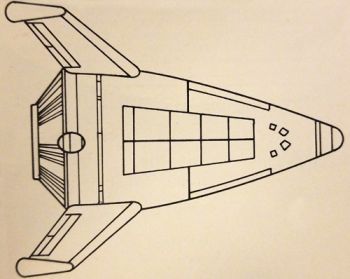Lindbergh class (FASA)
From Trekipedia
The printable version is no longer supported and may have rendering errors. Please update your browser bookmarks and please use the default browser print function instead.
FASA Timeline

Lindbergh class (SFC)
The Lindbergh class space ferry was launched in 2003, filling the role of the old Space Shuttle as the primary surface-to-orbit spacecraft. Early versions of the Lindbergh class were equipped with booster rockets, much like the Shuttle, but advances in early 21st century technology eventually eliminated the need them; the class was also equipped with eight cargo ports per side, for ready cargo access. The Lindbergh class played a vital role in the completion of the Orbital Power Satellite network, which guaranteed energy independence for Earth, as well as in the construction of orbiting satellite cities.[1]
Specifications
| Length | 61m |
| Beam | 51m |
| Mass | 2.5 million kg |
| Payload Bay | 10,000m³ |
| Maximum Payload | 1,000,000kg |
| Crew | 6 |
| Passengers | 125 |
Performance
| Velocity | 11,000m/second (Earth escape) |
| Range | Orbital to circumlunar |
| Landing/Takeoff | Horizontal Takeoff and Landing (HTOL) |
| Engines | Chemical Boost Single Stage to Orbit (SSTO) |
| Engine Configuration | Aerospike Plug nozzle with 24 coordinated small engines for greater efficiency and reliability |
References
- ↑ Goldstein, Stan and Goldstein, Fred with Sternbach, Rick. Star Trek: Spaceflight Chronology. Pocket Books, 1980.